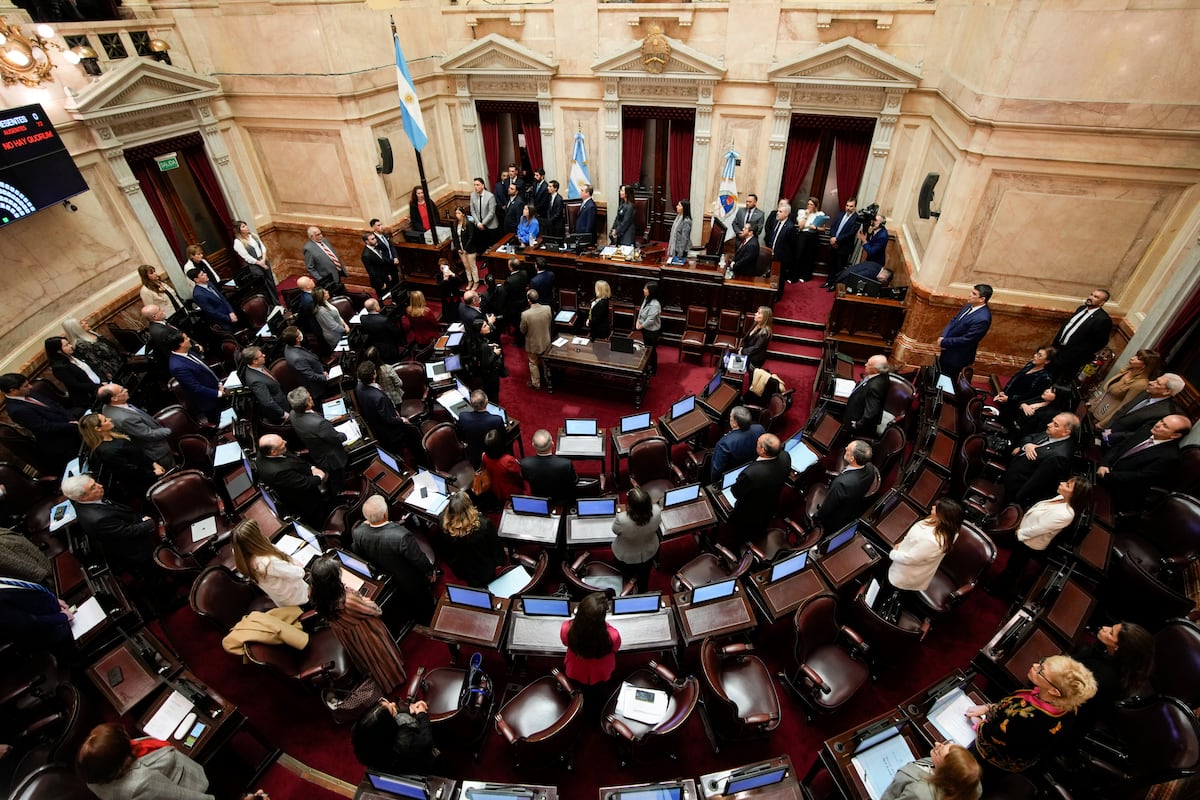Javier Milei's administration has achieved a significant milestone with the Senate's approval of the Base Law project. This contentious law aims to deregulate the economy, dismantle the state, and grant more legislative powers to the president. The approval came after a tense 13-hour session, resulting in a 36-36 tie. The deciding vote was cast by Vice President Victoria Villarruel in favor of the Government. The outcome underscores a day filled with social protests and police clashes that led to numerous injuries and arrests.
The Government heralded the Senate's nod as a victory. A statement from the Office of the President celebrated the approval, framing it as a triumph for democracy and a crucial step towards Argentina's recovery. However, the Base Law still needs to pass through the Chamber of Deputies again due to amendments made in its Senate version.
Throughout the day, protests erupted outside Congress, as various social, political, and union organizations took to the streets to voice their disapproval of the Government's measures. The protests escalated into violent confrontations between security forces and demonstrators, resulting in about 30 arrests and multiple injuries, including among opposition deputies. By evening, the protests had extended to various parts of Buenos Aires, where residents voiced their dissent through pot-banging demonstrations.
The Government's journey to secure the Senate's approval was fraught with compromises. With only 13 seats out of 72, Milei's ruling party, La Libertad Avanza, had to negotiate extensively, even during the sessions, to garner the necessary votes. Major concessions included scaling back on the privatization of state-owned companies, excluding enterprises like Aerolíneas Argentinas and Correo Argentino from the list.
The administration also had to curb its pension reform ambitions and agree to continue certain public works projects, especially those with international financing. Another significant concession was the limitation imposed on the Large Investment Incentive Regime (RIGI), a scheme designed to attract foreign investments through tax, customs, and exchange benefits. These compromises were essential to secure the backing of centrist and non-Kirchnerist legislators.
The Senate session witnessed intense debate as opposition legislators challenged the police crackdowns on protesters. Despite fierce opposition, key sections of the law were passed, including the delegation of legislative powers to the president and the declaration of various emergencies for one year. The privatization of public companies and the labor reforms were also approved, albeit with some sections only passing by a simple majority.
The Base Law's most debated element, the RIGI, drew criticism for potentially compromising natural resources and causing environmental risks. Following the Senate's approval, focus now shifts to the fiscal package, which includes income tax restorations and other tax reforms. The Government remains optimistic about passing these measures, as it prepares for an international diplomatic engagement at the G-7 summit.
- Even with the general approval of the Base Law and the fiscal measures, significant challenges remain for Milei's administration. Several key points within the law, such as delegated powers and certain privatizations, continue to face strong dissent both within the government and from the opposition parties.
- The privatization of Aerolíneas Argentinas, Correo Argentino, and other public enterprises remains a contentious issue. Opposition lawmakers and regional senators argue that privatization could lead to loss of essential services, particularly in less accessible regions like Tierra del Fuego.
- Further complicating the administration's efforts are divergent views on the Income Tax reversal and the implications of the RIGI. Critics argue that the RIGI disproportionately benefits large foreign investors at the expense of local businesses and environmental safety.
- Negotiations and political maneuvers continue behind the scenes as Milei's administration seeks to secure the necessary support for the remaining legislative hurdles. The outcome of these negotiations will significantly impact the political landscape and economic future of Argentina.






